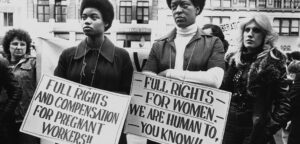
Feminism is an ideology that has continued to gain more recognition over last two decades. In a more straightforward explanation, feminism is the advocacy of equal rights and opportunities for women.
As the term and its movement have grown over time, divides between the stances and opinions of the movement began to show. This is the case with “white feminism” and “minority feminism.”
White feminism, as described by Rafia Zakaria, the author of “Against White Feminism,” is “someone who refuses to consider the role that whiteness and the racial privilege attached to it have played and continue to play in universalizing white feminist concerns, agendas, and beliefs as being those of all feminism and all feminists.”
The identity that white feminism takes on is known to suppress and minimize the voices of women of color, including Black, Latina, Asian, Native American and trans women.
As the movement grows, these communities are silenced and their issues are left unresolved, leaving many of these women to feel like they have no place in the movement at all.
Rachel Cargle, writer and activist, talks about how white feminism, among other things, is the centering of white women in the movement which leads to the separation and division.
“White women get so caught up in how they feel in a moment of WOC expressing themselves that they completely vacuum the energy, direction and point of the conversation to themselves and their feelings,” Cargle wrote.
This highlights one of the many ways and reasons that cause the divide of women in the movement.
All of these factors continuously go against the main ideals of the movement, speaking against the mistreatment of all women.
A first-year psychology student at FAMU, Jordan McCrary, has strong opinions about being a Black woman in the modern-day feminist movement.
“In my opinion, [Black] women are often excluded from the advancements of the feminist movement specifically,” McCrary said. “I still feel that white women benefit primarily from the movement and women of color are excluded from those benefits. As an African American woman, I can face multiple avenues of aggression: being Black, being a woman, etc., and most times it’s like I have to choose the struggle. It’s almost as if we don’t count within the movement.”
Many minority women feel their voices tend to be left to the side of the movement as a whole.
More women from these communities continue to join the movement and defend the rights of the marginalized women, but only time will tell if minority feminists will finally have their voices heard and be understood by white feminists.